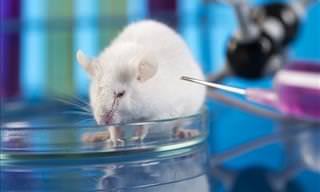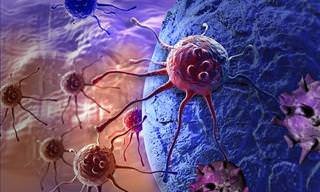Scientists have made a great step in their ongoing fight against cancer, developing a new way to kill cancer cells that may eventually give the world a new treatment option with better results than current methods.
Named Caspase-Independent Cell Death (CICD), it was able to completely destroy colorectal cancer cells that were grown in the lab. If the same results can be reproduced in humans, then we could finally have a treatment that can eliminate cancers in a way that is less destructive to the body with a lower chance of the cancer returning, according to the team from the University of Glasgow in the UK.
Stephen Tait, one of the researchers, states that “in essence, this mechanism has the potential to dramatically improve the effectiveness of anti-cancer therapy and reduce unwanted toxicity. Taking into consideration our findings, we propose that engaging CICD as a means of anti-cancer therapy warrants further investigation."
Current anti-cancer treatments work by apoptosis, a kind of programmed cell death where cells are ordered to destroy themselves, via proteins called caspases. This is how chemotherapy works, and it works well, but there are caveats.
These treatments can miss some of their targets, meaning cancer cells don’t get eliminated and that tumors have a greater chance of returning. Furthermore, they also damage healthy cells.
Enter CICD, which uses some of the mechanisms of apoptosis, but takes caspases out of the equation. When cells are destroyed by CICD, they send a signal to the immune system that will then attack any remaining cancer cells. This is a cleaner and safer way of treating tumors – though it’s worth emphasizing that the treatment has only been tested on lab models so far.
The hypothesis is that a therapy wouldn’t need to kill of all the cancer cells itself, as the body’s own immune system will swoop in and finish the job.
While these experiments focused on colon cancer, the researchers say that it could be adapted to tackle different types of cancers too. That’s one of the areas that will be investigated in future studies as scientists look to see whether it could work in humans.
Justine Alford, from Cancer Research UK, says that “this new research suggests there could be a better way to kill cancer cells which, as an added bonus, also activates the immune system. Now scientists need to investigate this idea further and, if further studies confirm it is effective, develop ways to trigger this particular route of cell death in humans.”
Source: sciencealert
Images: depositphotos
 Go to BabaMail
Go to BabaMail


























